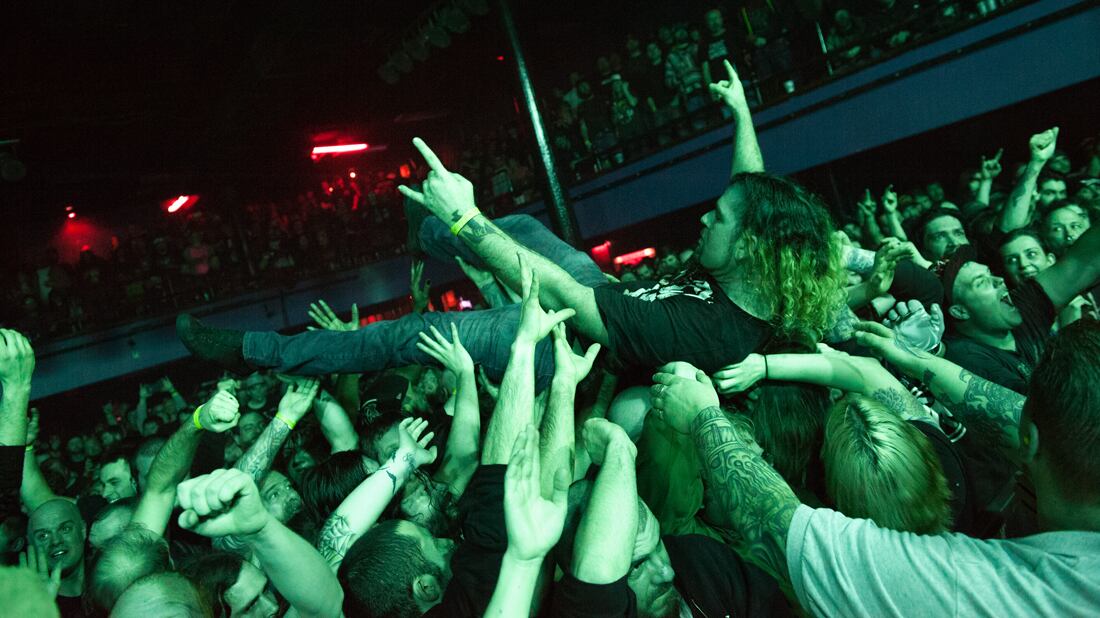The body of Tim Moreau is buried somewhere in the Columbia River Gorge. Despite his family's best efforts, it still hasn't been found.
Moreau would have been 50 this month, had he not been the victim of one of Portland's most remarkable crime stories.
After taking a leave of absence from Reed College, Moreau jumped headfirst into Portland's vibrant music scene, working as a promoter at Starry Night, a nightclub since renamed the Roseland Theater. The prominent venue was featured in Billboard magazine in 1986 for bringing acts like Tina Turner, Mötley Crüe and the Psychedelic Furs to Portland. Owner Larry Hurwitz was called "the New York new kid on the block" who had been booking big acts "long enough to prove a person can make money doing that sort of thing in the provinces."
Unfortunately for Moreau, some of that money wasn't legit.
On Jan. 23, 1990, the night after The Oregonian ran a story about the discovery of 180 counterfeit tickets to a John Lee Hooker concert connected to Hurwitz, Moreau was called to his boss's office.

The 21-year-old was never seen again.
Police found money, checks and other evidence related to the counterfeit ring in Moreau's apartment, and his car parked at the airport. But things didn't add up. If Moreau had fled, why did he leave everything behind?
As early as June 1990, Willamette Week reporter Jim Redden started to look into Moreau's disappearance. Hurwitz filed a $5 million libel suit against Redden and WW for a story that dug into Hurwitz's past brushes with police and all but accused him of murdering Moreau.
After WW incurred more than $200,000 in legal fees, the case was dismissed. But because of evidence revealed in discovery, Redden learned that Hurwitz hadn't filed tax returns for himself or the Starry Night.
Thinking the IRS would go after the nightclub owner, Redden published Hurwitz's bogus returns in his own biweekly newspaper, PDXS. The IRS didn't do anything, and Hurwitz moved to Vietnam, where he again began to promote concerts, even being filmed walking on the beach with Sting. This time, the U.S. paid attention and Hurwitz was extradited.
Asked why he stuck with the case, Redden told WW in an email, "He challenged the accuracy of my reporting. What was I supposed to do?"
In 1998, Hurwitz's associate George Castagnola pleaded guilty to Moreau's murder, saying he held Moreau down while Hurwitz strangled him in a backstage hallway. The motive? To keep him from talking about the counterfeit ticket scam. Castagnola took investigators to the Gorge to look for Moreau's remains. With no body and no physical evidence, prosecutors had a tough case to prove and offered Hurwitz a deal if he would plead "no contest" in 2000.
Moreau's parents, retired social workers Mike and Penny Moreau, tell WW, "If it weren't for the press and media efforts, we probably wouldn't know what happened to our son." They have also made themselves available to other families of murder victims working their way through the justice system.
Hurwitz and Castagnola each served 10 years. Castagnola is settled in Hawaii, and according to LinkedIn, Hurwitz has been working in the Portland-area events business since 2010.
The Starry Night, meanwhile, was sold to concert promoter David Leiken in 1991, who changed its name to the Roseland Theater.
Hurwitz did not respond to WW's requests for comment.

The Kelly's Olympian Piss Troughs | No Dancing at Goose Hollow Inn | The Horse Brass Exchange | When Kurt Met Courtney | The Starry Night Murder | Tonya Harding and Dockside | Lutz Tavern Saves PBR | Food Fight at Magic Garden | The Poet Under the Stairs | The Unlucky Devil Lounge

